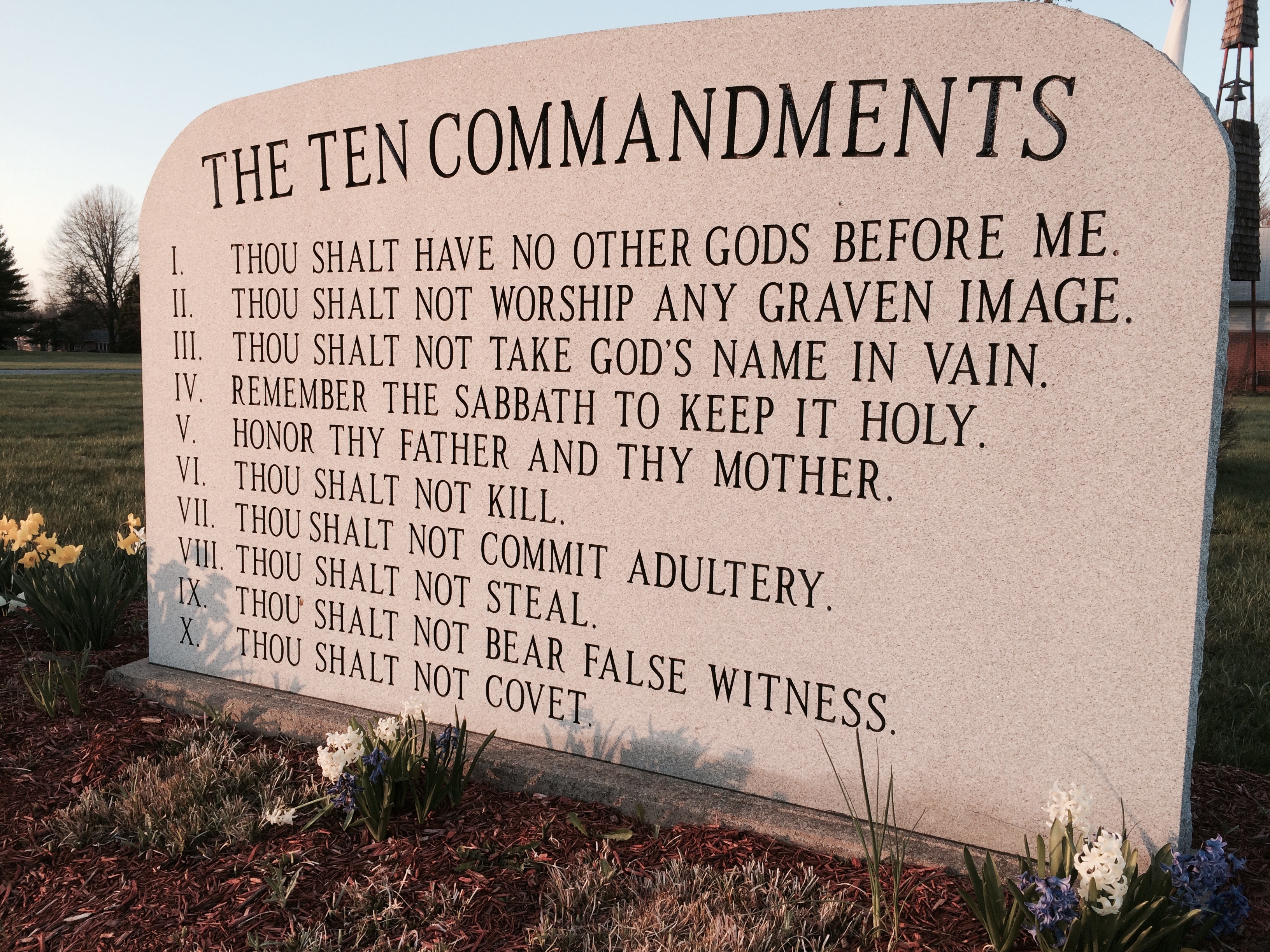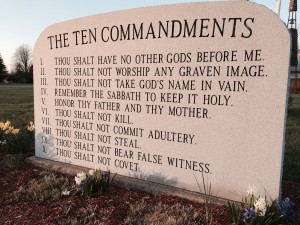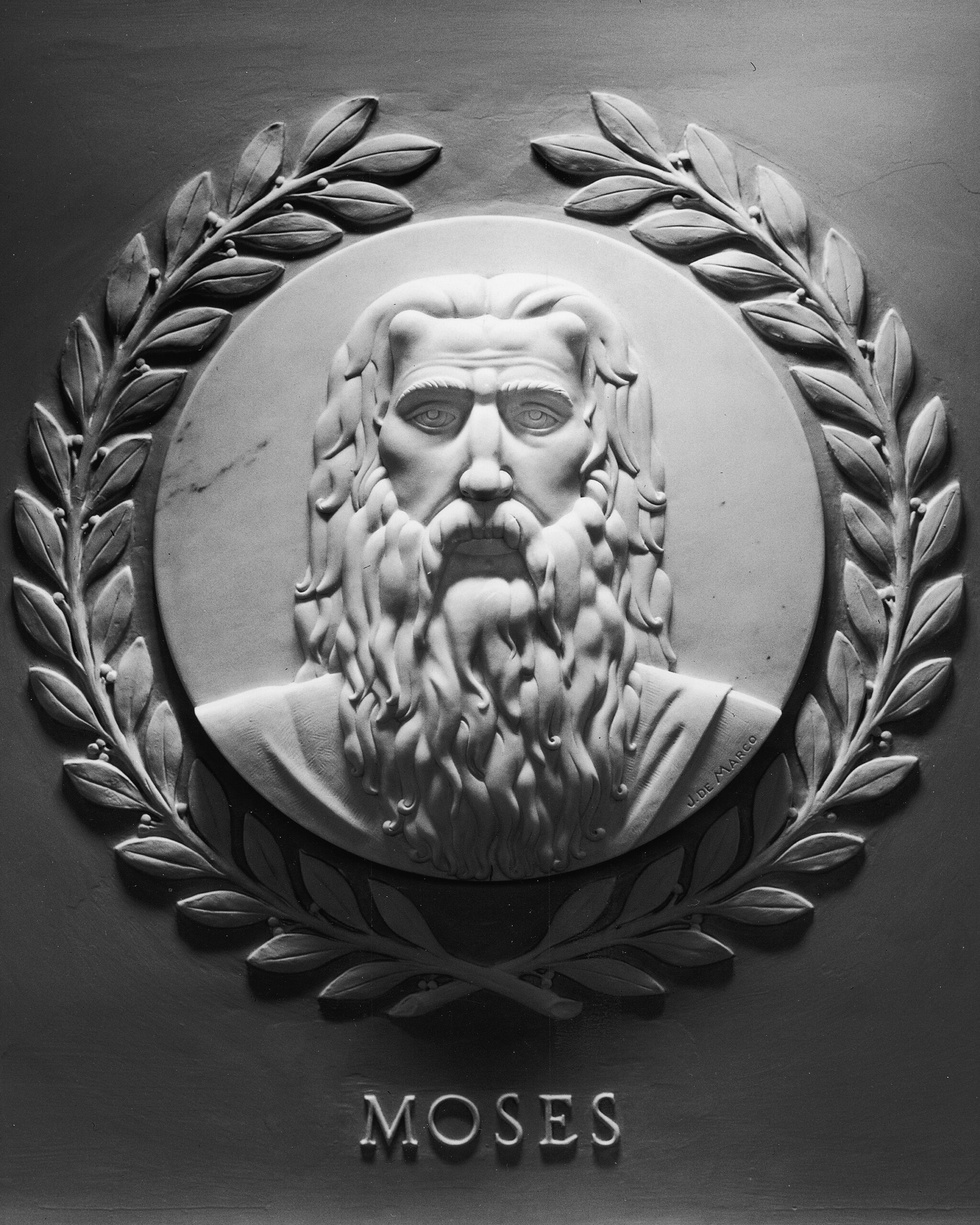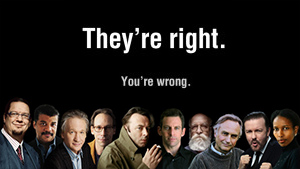Dear Jim…
I can’t prove that Jesus died and came back to life.
I can point to all of the evidence that exists in terms of archaeology, architecture, music, literature, art and 2,000 years worth of dramatically changed lives, but I don’t have a selfie featuring the Son of God and me mugging for the camera as He’s existing the empty tomb.
That’s the thing about Scripture that makes it difficult to “prove.” We can’t go back in time and validate things as an eyewitness. We’re limited to what’s been written and then go from there.
Thing is, atheists are in a similar predicament in that they can’t prove that Jesus never existed. Again, going back to the aforementioned evidence, while I can process it as credible, someone else can come along and logically question just how “credible” it is in light of possible corruption or anything else that could possibly have been done in centuries past that makes the whole thing imaginary and thus irrelevant. But, again, you can’t “prove” that by providing raw footage of said corruption. We both have to contend with the same limitations and thus the same lack of absolute certainty.
There is, however, something else to consider and that’s the “utility” of the Bible.
However subjective the historical reality of Christ may be, the philosophical paradigm that’s advocated in Scripture is a purely objective entity which can be read and applied in real time. In this context, we’re not looking at whether or not what we’re evaluating was crafted 2,000 years ago. You’re simply looking at the way in which Scripture instructs people to live and think and then observing what results from applying those Truths. And it’s in the context of applying those Truths – using the methodology that’s also taught in Scripture – that you discover perhaps the most compelling evidence for the Christian doctrine.
Let me show you…
Let’s go with the Ten Commandments for starters. Remember, we’re not trying to authenticate the identity of Moses or whether or not the Red Sea was parted, thus allowing the Israelites to pass through on dry land. We’re looking at the practical application of Exodus 20 and considering how it impacts the life and perspective of someone who’s applying it in the way the approach themselves and the world around them.
You shall have no other gods before me. (Ex 20:3)
You can’t be greedy, prideful or depressed unless you’re thinking of yourself first and foremost. I’m not saying you have to be “selfish” to be sad. What I’m saying is that in order to be perpetually cynical or to exist in a state of chronic despair, you have to be focused on:
- what’s happened to you
- why it happened to you
- how it makes you feel
- how you can’t think of anything else
- how you will never be the same
- and how everyone should make an exception for you because of the situation you are in
In a similar way, a consistently prideful disposition is possible only if you’re focused on…
- what you can do
- what you have accomplished
- why you are so special
- what you are planning
- and why you need to be the center of attention regardless of whatever else may be going on
When you make a point of subordinating what would otherwise be a situation where everything is processed through the filter of your ability and your preferences, you open yourself up to a perspective that is founded on Perfect Strength, Knowledge and Love. Consequently, you are a pleasure to work with, you have an optimistic disposition, your priorities are in order and should someone ask what it is that makes you tick, you are quick to point to the True Source of both your mindset and your ability.
4 You shall not make for yourself an image in the form of anything in heaven above or on the earth beneath or in the waters below. 5 You shall not bow down to them or worship them; for I, the Lord your God, am a jealous God, punishing the children for the sin of the parents to the third and fourth generation of those who hate me, 6 but showing love to a thousand generations of those who love me and keep my commandments. (Ex 20:4-6)
I can put premium fuel into my gas tank or I can fill it up with water. The gauge may say my tank is full, but the moment I go to start my car, the true composition of my fuel is going to be revealed as either real or fake.
If I’m going to benefit from all that Christ brings to the table, I’ve got to be focused on the Person of Jesus Christ as He’s defined in Scripture and not an image of Christ as he’s represented by a collection of cultural opinions. And not only for my own sake, but also for those who are within the sphere of my influence. Otherwise, not only am I going to be sitting on the side of the road, so will everyone else who’s followed my example.
You shall not misuse the name of the Lord your God, for the Lord will not hold anyone guiltless who misuses his name. (Ex 20:7)
Even if I do have premium fuel in my gas tank, I’m still behind the wheel. I can choose where to go, regardless of the map that God’s given me that leads to a destination I can be certain is well worth my time and energy.
It’s one thing when I make it clear that I’m headed off in a different direction simply because I think I know better. It’s quite another when I profess to be following the Instructions on the box when in fact I’m not. At that point, I’m forging His Signature and giving the world the impression that I’m obeying my Heavenly Father when, the truth of the matter is, my Heavenly Father may have told me to do the exact opposite.
In that moment, not only am I squandering all the potential represented by Jeremiah 29:11, I’m also a potentially toxic distraction to those on the outside looking in who believe, based on my phraseology, that I’m a good example of what God can do in and through a person who’s serving Someone and Something greater than themselves.
8 Remember the Sabbath day by keeping it holy. 9 Six days you shall labor and do all your work, 10 but the seventh day is a sabbath to the Lord your God. On it you shall not do any work, neither you, nor your son or daughter, nor your male or female servant, nor your animals, nor any foreigner residing in your towns. 11 For in six days the Lord made the heavens and the earth, the sea, and all that is in them, but he rested on the seventh day. Therefore the Lord blessed the Sabbath day and made it holy.
Going to church on Sunday and being engaged rather than simply being present is much like going outside and looking at the stars on a clear night. You’re not just observing the constellations, you’re holding yourself and your circumstances up the Light of God’s Reality and Ability (Psalm 8). In that moment, you’re reminded of how it’s not what’s “happening” in your life as much as it’s what God is “doing” in your life. And with that reminder comes the philosophical foundation that needs to be dusted off from time to time and that’s the fact that He is God and He is aware and that He is able.
Honor your father and your mother, so that you may live long in the land the Lord your God is giving you. (Ex 20:12)
One of the primary jobs that your parents have is to teach you all about God, His Word, and why it’s as advantageous as it is to seek His Counsel in everything you say, think and do. If you’re honoring them, you’re opening yourself up to what they have to say and all the benefits that go along with it.
Now, while that command is for children, parents have got a line to toe as well (Prov 22:6; Eph 6:4). There’s more to “training” your child than just insisting that they go to church every Sunday and refrain from immoral behavior simply because “they should.” When you pop the hood on Proverbs 22:6, the verbiage is telling the parent to know their child well enough to understand how they are wired so that the advantages of obeying Scripture are understood as legitimate benefits and not intrusive limitations. To teach someone means to cause them to learn. If they’re learning nothing more than just a code of ethics that they’re adhering to simply to avoid disciplinary action from the Mom and Dad, they’re not learning anything other than just how to avoid being grounded.
On the other hand, if Mom and Dad are diligent students of Scripture and can not only explain what they believe and why, but also back their creed up with their character, then they’re in a good position to truly teach their kids Who God is and what He’s bringing to the table. It’s at that point that Exodus 20:12 is especially practical because you now have the Authority of God Himself behind a parent’s efforts to teach and train their child.
If every parent was resolved to lead by example and teach their kids everything that goes along with 1 Corinthians 12:31, then the world would be a better place. But not every parent thinks like that and some end up abusing their kids rather than raising them. Still, this command is helpful because you want to honor the office even if you don’t honor the man or the woman. Reason being is that an abusive parent leaves emotional and psychological wounds that are deep and dark. If you don’t forgive them, you wind up fastening a ball and chain to your psyche that makes it difficult to function. By obeying this command, you release the poison in your system that, while it may be there through no fault of your own, it is still something you want to rid yourself of if for no other reason than to ensure the apple falls as far away from the tree as possible when the time comes to raise your own children.
You shall not murder. (Ex 20:13)
This isn’t just a command to not kill someone. When you consider the fact that man is made in the image of God, you’re not just taking a life, you’re assaulting that which is precious and valuable to your King.
Dr. Ravi Zacharias sums it up this way…
At its core life is sacred and of inestimable value, whether it is the life of a darling child in the fresh blossom of childhood, or the life of an elderly, weak, and frail recluse. We are each made in God’s sacred image. Think of this truth! That is why murder is described in Scripture for what it is: an attack upon God’s image. That is also why we are told, “Everyone who hates his brother is a murderer” (1 John 3:15). Murder and even hateful words are attempts to destroy God’s image in another and to deny one’s value and spiritual essence. It is that essence which gives us our dignity and our worth. It is that essence which is our glory and true home.
When you make a point of seeing others as those who bear the image of God, it changes the way you look at people in general. Regardless of their race, color, creed or whether or not they just cut you off in traffic, theirs is an identity founded on something Divine and thus rates a consideration that goes beyond what might otherwise be the case if your perspective was founded solely on your personal passions and preferences.
It’s the fact that your neighbor (see Lk 10:25-37) bears the image of their King and therefore is more than a random face in the crowd that serves as the philosophical foundation for the remaining commandments.
You shall not commit adultery. (Ex 20:14)
It’s not just a violation of one’s chastity, it’s a violation of the marriage covenant which, by definition, is a contract made with God.
You shall not steal. (Ex 20:15)
You’re not just taking something that doesn’t belong to you, you’re taking something that was given to someone else by God.
You shall not give false testimony against your neighbor. (Ex 20:16)
You’re not just attacking the integrity of your neighbor, you’re attacking the integrity of God. That’s not to suggest that your neighbor is the embodiment of truth, but, again, because he’s made in the image of God, there’s a bigger picture to consider than just the individual you’re maligning.
You shall not covet your neighbor’s house. You shall not covet your neighbor’s wife, or his male or female servant, his ox or donkey, or anything that belongs to your neighbor. (Ex 20:17)
Some of you have probably heard me mention the simple conversation between Jesus and the one who was questioning him, trying to pit him against Caesar. And he looked at Jesus and he said, “Is it alright to pay taxes to Caesar?” (Mark 12:14-17) That is one question I wish so desperately Jesus had answered differently—then on April 15 you could be godly and rebellious at the same time!
Jesus, so brilliant in his response, he says, “Give me a coin.” And he took the coin and he says, “Whose image do you see on this?” The man says, “Caesar.” Jesus says, “Give to Caesar that which is Caesar’s, and give to God that which is God’s.”
The disingenuousness of the questioner is noticed in the fact that he did not come back with a second question. He should have said, “What belongs to God?” And Jesus would have said, “Whose image is on you?”
Give to Caesar that which belongs to Caesar; give to God that which belongs to God. God’s image is on you. (Ravi Zacharias)
To covet something goes beyond simply admiring it. It means that you’re intent upon seizing it illegitimately. Whereas stealing is the external act of thievery, coveting is the internal machinations that lead to stealing.
Again, because your neighbor is made in the image of God, any sort of malice or wrongdoing directed towards your neighbor is ultimately an assault on God Himself.
So, to summarize what we’re looking at here:
This is more than just a code of ethics to be adhered to for the sake of being courteous and moral. It’s a perspective that’s founded on the vertical relationship that exists between all of humanity and God. And what makes all this incredibly amazing and distinctive when compared to all other religions is that God doesn’t simply say, “Get it done or else!” He provides both the strength (Is 41:10; 1 Cor 10:13) and the will (Ps 119:32; Jer 31:33; Rom 6:18; Phil 2:13) to make it happen.
And there’s so much more…
But the bottom line is: It works.
In 1976, a gentleman by the name of Francis Schaeffer published a book entitled, “How Then Shall We Live.” It’s a phenomenal book that traces the way in which society thinks based on its collective worldview and how this collective mindset can be seen in its art and architecture as well as in its religious orthodoxy. His point is that when you build your society / individual life on Divine Absolutes, the result is something substantial and liberating.
It works…
On the other hand, when you build your society / individual life on a humanistic paradigm, the result is a chaotic and fragmented existence.
It’s an overview of that book that I would submit as my conclusion.
When someone asks me, “What do you believe and why do you believe it?” I respond by saying that, “I believe that Jesus died and came back to life.” And when they ask, “Why do you believe that?” I answer, “…because of the credibility and the utility of Scripture.” And while I can’t provide raw footage of any of the apostles or the prophets writing said text, I can look at the content and see a way of life that justifies my confidence in my creed.
There you have it!
















Leave a Reply
Want to join the discussion?Feel free to contribute!